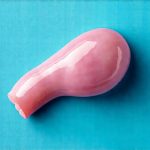Many individuals experience uncomfortable pressure in their bladder, often leading to frequent urination, urgency, or even incontinence. While urinary tract infections or underlying medical conditions are common culprits, a surprisingly significant factor frequently overlooked is the state of our digestive system. The connection between gut health and bladder function isn’t always immediately apparent, but it’s deeply rooted in anatomical proximity and physiological interplay. A sluggish or imbalanced digestive process can directly contribute to increased pressure on the bladder, creating a cascade of uncomfortable symptoms. Understanding this link empowers us to explore holistic approaches that address the root cause rather than simply manage the effects.
This article delves into how optimizing your digestive flow – essentially, ensuring food moves smoothly through your system – can significantly alleviate bladder pressure and improve overall urinary health. We’ll examine the physiological reasons behind this connection, practical strategies for enhancing digestion, and lifestyle adjustments to support a healthier gut-bladder axis. It’s about recognizing that sometimes, the solution to bladder issues isn’t found in urology alone, but within the often underestimated power of a well-functioning digestive system. This is not about self-diagnosing or replacing professional medical advice; it’s about empowering yourself with knowledge and exploring complementary strategies for wellness.
The Gut-Bladder Connection: Why Digestion Matters
The intimate relationship between the gut and bladder stems from their close anatomical proximity within the pelvic region. Both organs share nerve pathways and are influenced by similar hormonal signals. A full, sluggish digestive system physically presses on surrounding structures, including the bladder. This direct pressure reduces bladder capacity and increases urgency – essentially making you feel like you need to go more often, even if your bladder isn’t truly full. Furthermore, chronic constipation, a hallmark of poor digestion, can lead to pelvic floor dysfunction. The pelvic floor muscles support both the bladder and bowel; prolonged straining during bowel movements weakens these muscles over time, diminishing their ability to properly support the bladder, contributing to leakage or a feeling of incomplete emptying.
Beyond physical pressure, digestive imbalances impact bladder health through inflammation and gut microbiome disruptions. An unhealthy gut – characterized by an overgrowth of harmful bacteria (dysbiosis) – releases inflammatory molecules that can affect nerve function and exacerbate bladder sensitivity. This heightened sensitivity increases the perception of urgency and discomfort. Interstitial cystitis, a chronic bladder condition, has even been linked to gut dysbiosis in some research, suggesting the microbiome plays a more significant role than previously thought. A compromised digestive system also hinders nutrient absorption, potentially leading to deficiencies that impact nerve health and overall pelvic floor function. To learn more about supporting your pelvic floor, explore mobility exercises for enhanced bladder flow.
Finally, consider the concept of visceral hypersensitivity – an increased sensitivity to normal bodily sensations within the abdomen. Poor digestion can contribute to this, making individuals more aware (and distressed by) normal bladder contractions or fullness. Addressing digestive issues therefore isn’t just about eliminating waste; it’s about reducing inflammation, supporting nerve health, and restoring balance to the entire pelvic region.
Strategies for Enhancing Digestive Flow
Improving digestive flow is achievable through a combination of dietary adjustments, lifestyle modifications, and mindful practices. The cornerstone is often increasing fiber intake – but not all fibers are created equal! Focus on incorporating both soluble (found in oats, apples, beans) and insoluble fiber (found in whole grains, vegetables) to promote regularity and overall gut health. Hydration is equally crucial; water helps soften stool and facilitates movement through the digestive tract. Aim for at least eight glasses of water daily, adjusting based on activity level and climate.
Beyond diet, regular physical activity plays a vital role. Exercise stimulates intestinal motility – the natural muscle contractions that move food along the digestive system. Even moderate exercise like walking or yoga can make a significant difference. Mindful eating practices are also incredibly beneficial. This means slowing down during meals, chewing thoroughly, and avoiding distractions (like screens) which can interfere with proper digestion. Eating in a relaxed state – rather than stressed or rushed – allows your body to focus on the digestive process. Consider practicing mindful eating for reduced bladder discomfort during mealtimes. Finally, consider incorporating probiotic-rich foods like yogurt, kefir, sauerkraut, or kimchi into your diet, or explore probiotic supplementation after consulting with a healthcare professional, to support a healthy gut microbiome.
Optimizing Your Daily Routine for Better Digestion
A consistent daily routine can have a profound impact on digestive health. Establishing regular meal times helps regulate the digestive system and promotes predictable bowel movements. Avoid skipping meals, as this disrupts the natural rhythm of your gut. – Aim to eat your largest meal earlier in the day, giving your body more time to digest before bedtime. – Incorporate a short walk after meals to aid digestion and prevent bloating. To support healthy habits, think about adjusting your meal timing.
Stress management is also essential. Chronic stress negatively impacts digestion by diverting blood flow away from the digestive system and increasing cortisol levels, which can disrupt gut motility. Techniques like meditation, deep breathing exercises, or yoga can help mitigate these effects. Consider keeping a food diary to identify potential trigger foods that exacerbate your digestive symptoms. This allows you to make informed dietary choices and tailor your eating plan to your individual needs.
Addressing Constipation: Gentle Solutions
Constipation is often at the heart of bladder pressure issues. However, avoid relying on harsh laxatives, as these can disrupt gut health in the long run. Instead, focus on gentle, natural solutions. – Increase your fiber intake gradually to avoid bloating and discomfort. – Ensure adequate hydration throughout the day. – Consider incorporating magnesium-rich foods (like dark leafy greens, nuts, seeds) into your diet, as magnesium helps soften stool.
If constipation persists, explore options like psyllium husk or flaxseed meal – both natural sources of fiber that can promote regularity. Remember to drink plenty of water when using these supplements. Regular bowel movements are a sign of a healthy digestive system, and striving for at least one bowel movement daily is a good goal. You might find natural stool regulation techniques helpful. If you’re struggling with chronic constipation, consult with a healthcare professional to rule out underlying medical conditions.
The Role of Pelvic Floor Exercises & Mindful Movement
While focusing on digestion, don’t neglect the pelvic floor! Strengthening these muscles can provide vital support to the bladder and improve urinary control. Kegel exercises – contracting and releasing the pelvic floor muscles – are a simple yet effective way to do this. – Start with 10-15 repetitions several times a day. – Focus on proper form: contract as if you’re stopping the flow of urine, then release.
Mindful movement practices like yoga or Pilates can also enhance pelvic floor function and improve body awareness. These exercises encourage deep breathing and promote relaxation, reducing tension in the pelvic region. Remember that overly tight pelvic floor muscles can also contribute to bladder pressure; therefore, it’s essential to balance strengthening with stretching and releasing techniques. A physical therapist specializing in pelvic floor dysfunction can provide personalized guidance and ensure you’re performing these exercises correctly. Consider incorporating guided movement flow into your routine.





















